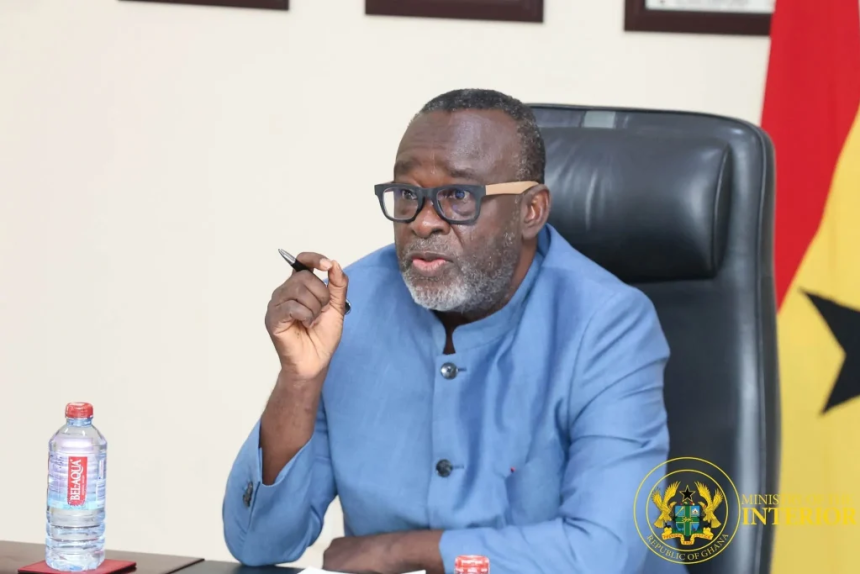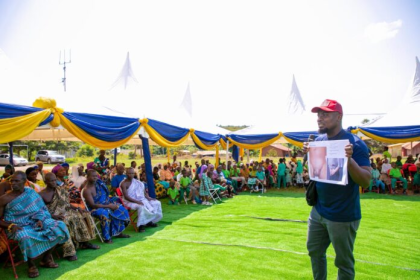Acting Chief Justice Paul Baffoe-Bonnie has called on African countries to prioritise transparency, accountability, and local participation in all extractive sector agreements.
“Our people must not be mere spectators in their own dispossession. We must insist on transparency, accountability, and local participation in all extractive agreements,” he stated.
Justice Baffoe-Bonnie made the remarks at the opening of the 2025 Annual African Bar Association Conference in Accra, which brought together justice advocates, Bar Association members from various countries, Ministers of Justice, and Attorneys-General.
The conference is on the theme: “Foreign Investment in Africa: Investment or Exploitation.”
Justice Baffoe-Bonnie said the conferences’ theme underscored the need for economic and intellectual liberation.
He urged African nations to take control of their resources and curb financial leakages.
“We cannot develop when more wealth leaves our shores each year than enters through trade and aid combined.
“We must reform our institutions of negotiations,” he said, adding that “those who negotiate for Africa must be armed with not only contracts but with conscience.”
Justice Baffoe-Bonnie also advocated investment in intellectual sovereignty, legal knowledge, and economic frameworks tailored to Africa’s development.
He stressed the importance of intra-African trade and called for full utilisation of the Africa Continental Free Trade Area Secretariat to build a unified and powerful economy.
“If we can trade cocoa for machinery, energy for technology, ideas for innovation, we shall no longer need to plead for what we can produce.
“We must also practice smart diplomacy by engaging with the world not as beggars but as partners, diversifying alliances and ensuring that every handshake leaves both hands equally full,” he stated.
Justice Baffoe-Bonnie observed that foreign interests often influenced governance and policy decisions through subtle persuasion or overt pressure, shaping legal and institutional reforms.
“It is evident in the extraction of our national resources where concessional agreements too often enrich the few and impoverish the many, leaving our lands barren as others prosper from their bounty.
“That is not all, it echoes through our economies where structural dependencies and conscientises are woven so tightly that the very fabric of our individual sovereign will is strained.”
Justice Baffoe-Bonnie observed that foreign influence extended to national security arrangements, where external advisors and partners often shaped national agendas under the pretext of cooperation.
He cited data from the African Union and the United Nations Economic Commission for Africa, indicating that Africa loses between US$50 billion and US$60 billion each year through Illicit Financial Flows (IFFs), involving profits that are hidden, misused, or siphoned off through tax evasion and trade manipulation.
“Over the last 50 years, it is estimated that over one trillion dollars had been illicitly strained from the continent, and that was equal to all development aid Africa received in the same period.”
The Acting Chief Justice noted that Africa remained the richest continent in natural resources, holding 30 percent of the world’s minerals, 40 percent of gold, 60 percent of cobalt, 90 percent of platinum, and producing 12 percent of global oil, in addition to vast arable land and abundant sunlight.
“Yet paradoxically, we are still called poor. While others govern their resources, we continually merely harness ours, allowing others to decide the value, control their pricing and benefit from their proceeds.
“It is not exploitation alone that impoverishes us; it is misgovernance. It is not lack of wealth; it is lack of will.”
He emphasised that African countries must govern their resources with justice, equity, and foresight.
Justice Baffoe-Bonnie cited Ghana’s Constitution, which recognises natural resources as the property of the people held in trust by the President.
He described the establishment of the Goldbod in Ghana as a promising example of deliberate policy aimed at coordinating the gold trade and ensuring that proceeds flow through national systems to enhance foreign exchange earnings.
GNA






